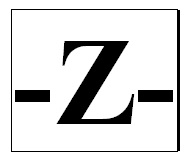(English translation below)
(En español abajo)
这是我的第一个中文的博客文章
我是一年学中文得
记忆短语集了
天天学了十个短语了
我叫邓宝瑞
澳洲悉尼人
第一个语言是英语
我也学了法文西班牙语
我还就认识一些汉字
English
This is my first blog post in Chinese.
I have been studying Chinese for a year.
I memorized a phrasebook.
Every day I learnt 10 phrases.
My name is Deng Baorui (that’s my Chinese name).
I’m from Sydney, Australia.
My first language is English.
I also studied French and Spanish.
I only know some Chinese characters.
Español
Este es mi primer blog post en chino.
Estoy estudiando chino por un año.
He memorizado un libro de frases.
Todas las dias he aprendado 10 frases.
Me llamo Deng Baorui (ese es mi nombre chino).
Vivo en Sydney, Australia.
Mi primer idioma es inglés.
Yo he estudiado francés y español tambien.
No conozco muchos caracteres chinos.
